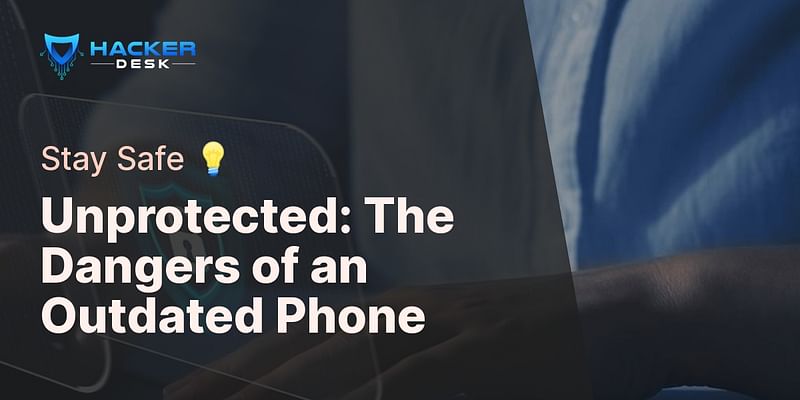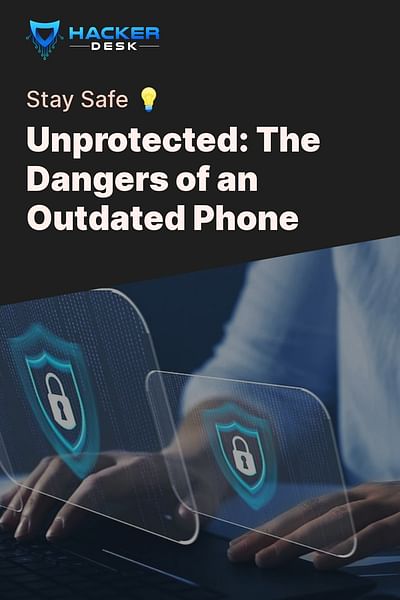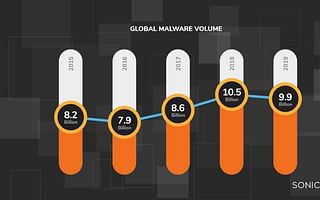Rhett Rowe is a seasoned expert in cybersecurity, boasting over 15 years of professional experience in the industry. He has collaborated with numerous Fortune 500 companies, aiding them in fortifying their digital infrastructures. Rhett is a Certified Ethical Hacker (CEH) and has earned his Master's degree in Information Security from Stanford University.
Using an old phone that no longer receives security updates can expose you to several risks. Here are the key dangers you should be aware of:
1. Vulnerabilities and Exploits: As technology advances, so do the tactics and techniques used by cybercriminals. Without regular security updates, your old phone is more susceptible to vulnerabilities and exploits. These vulnerabilities can be exploited by hackers to gain unauthorized access to your device, steal personal information, or even take control of your phone remotely.
2. Lack of Patches: Security updates often include patches that address known vulnerabilities and bugs in the operating system and applications. Without these patches, your old phone remains exposed to these vulnerabilities, leaving it open to potential attacks. This can lead to privacy breaches, data loss, and even financial fraud.
3. Outdated Security Features: Older phones may lack the advanced security features found in newer devices. These features, such as biometric authentication (fingerprint or facial recognition), secure boot, and encryption, provide an additional layer of protection against unauthorized access. Without these features, your old phone becomes an easier target for attackers.
4. Compatibility Issues: As technology evolves, new apps and services are developed to take advantage of the latest features and security enhancements. However, older phones may not be compatible with these new applications, leaving you unable to access certain services or missing out on important security updates.
5. Limited Support: When a phone reaches its end-of-life or is no longer supported by the manufacturer, it means that you won't receive any further assistance or support for issues that may arise. This lack of support can be problematic if you encounter security-related problems or need help with device-specific vulnerabilities.
Now that we've covered the risks, you might be wondering what you can do to mitigate them. Here are a few steps you can take to enhance the security of your old phone:
1. Keep Software and Apps Updated: Although your phone may no longer receive official security updates, it's still crucial to keep the operating system and installed apps up to date. Check for updates regularly and install them from trusted sources.
2. Be Mindful of App Permissions: Pay attention to the permissions requested by apps before installing them. Only grant necessary permissions and be cautious of apps that ask for excessive access to your personal data.
3. Install Security Apps: Consider installing reputable security apps from trusted vendors. These apps can provide an additional layer of protection against malware, phishing attempts, and other security threats.
4. Limit Network Exposure: Avoid connecting your old phone to unsecured or public Wi-Fi networks, as these can be breeding grounds for attackers. Stick to trusted networks and use a virtual private network (VPN) for added security when connecting to the internet.
5. Consider Upgrading: If your old phone is no longer receiving security updates and you rely heavily on it for sensitive tasks, such as online banking or accessing confidential work information, it may be time to consider upgrading to a newer device that receives regular security updates.
Remember, while these steps can help mitigate some of the risks, they are not foolproof. The best way to ensure your digital security is to stay informed, practice good cybersecurity hygiene, and regularly assess the risks associated with your devices.
I hope this comprehensive answer has shed some light on the risks of using an old phone that no longer receives security updates. If you have any more questions or need further assistance, feel free to reach out. Stay safe and secure out there!













